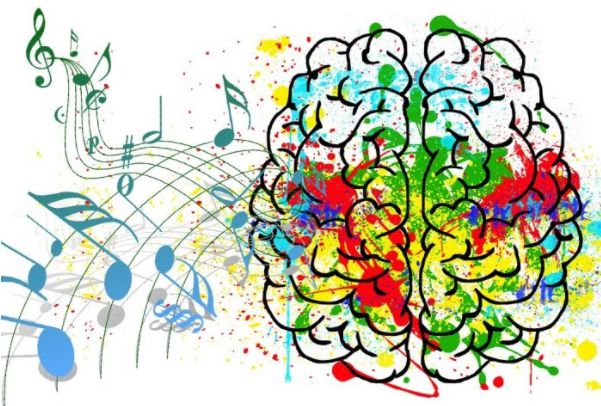Long before we acquired language, humans were communicating through music. We have an instinctive connection with song, dance and rhythm that makes these an integral part of celebrations, rituals, and everyday life. Countless generations of people have benefited from the advantages of music therapy. It soothes the sick, lifts up the vulnerable, and gets us through tough times.
Addiction treatment has evolved dramatically over the last few decades. Inpatient treatment facilities were once no more than holding cells for people who were deemed to be “no good”, and who had to be kept away from society. Rehab evolved into individual and group therapy, and more recently, we went back to our musical roots and started incorporating music therapy in addiction treatment programs.

There are many healing benefits of music addiction therapy. It provides a way for people to communicate without words, and it can get them in touch with their own emotions. It can be an uplifting, cathartic experience for those who take part.
Addiction Treatment: What Is Music Therapy?
The American Music Therapy Association defines music therapy as “the clinical and evidence-based use of music interventions to accomplish individualized goals within a therapeutic relationship.”
The process begins with an assessment of the individual to determine what their strengths, challenges and goals are. Over the course of the music therapy program, the client is guided through the process of using singing, dance, instrumental music and music creation to address their physical, emotional cognitive and social needs.
Music Therapy As An Addiction Treatment Tool

Addiction is a complex condition that requires a highly individualized approach to treatment. Music therapy alone is usually not enough to get you through rehab, but it can be a very effective component of an overall addiction treatment plan.
Music therapy for addiction treatment evolves as you progress through the stages of recovery. In the early days, when you are new to addiction recovery and still trying to find your way around the rehab facility, you may experience a whirlpool of emotions. During this time, music can be used as a safe way to express fear, anger, frustration, resentment toward loved ones, and other emotions that are potentially destructive.
For most people, the biggest element of addiction treatment is individual therapy. This is where you have one-on-one time with a counsellor to discuss sensitive areas of your life that you are not comfortable discussing in front of other people.
It is these elements of your life that may have played a significant role in your path to and through addiction. If like many people, you are not comfortable talking to a complete stranger about difficult things, music therapy can help draw out those emotions.
One of the advantages of music therapy for addiction treatment is that it can serve as a launchpad for discussion with your counsellor. By talking about what you are doing in your music therapy sessions, you can build a relationship of trust with your counsellor, and relate your emotions with music to your emotions when you are trying to address those troubling areas in your life.
Another key element of music therapy – and one that should not be underestimated – is that it can be enjoyable. Addiction treatment is hard. Group and individual therapy can be draining and overwhelming. However, music therapy gives you an opportunity to just let yourself have some fun.
Applying Music Therapy Principles When Rehab Is Over

One of the beautiful things about music is that everyone has access to it. When your time in rehab is done and you return home, music can be a powerful tool in helping you make the transition back to the real world.
Some benefits of using music during the post-rehab phase of recovery include the following:
- Unlike the world of rehab in which almost every moment of your day is scheduled, when you are back home you may find yourself with great swathes of time to manage. This can be overwhelming, especially for those who do not have a job to go to. By using some of what you learned in your music therapy sessions – for example, by dancing or creating some music of your own – you can fill up that time in a productive manner.
- One of the biggest triggers for relapse is stress. Being in rehab, you are protected from being knocked around by life. When you are back home, like it or not, stressful things are going to happen. By listening to music, dancing, or playing an instrument – even a makeshift instrument constructed from everyday household items – you can boost your dopamine levels in a natural, healthy way, feel good about yourself and reduce your stress levels.
- Recovery can be a lonely place if your pre-recovery social network consisted entirely of people who used drugs or alcohol with you. Even if you become part of a support group and form friendships there, you may still find yourself in a position of feeling lonely. Music can make you feel connected and less alone.
Related article: The Advantages of a Growth Mindset for Addiction Recovery
The Benefits Of Music Therapy for Addictions Treatment
The healing benefits of music therapy vary from person to person. Everyone is different, and everyone will derive their own unique gains from using music as a therapy tool. Not everybody likes to dance, but the person who doesn’t like to dance might instead enjoy participating in a drum circle. Some people play instruments; those who don’t may enjoy singing, or unleashing their poetic skills and writing some lyrics.
The key thing to remember is that you do not have to have any musical experience or level of proficiency in order to benefit from music therapy. This method of treatment is as universal as music itself.

The many benefits of music therapy include the following:
- It provides a means of communication for those with impaired communication abilities, such as people with autism
- It is a great stress reliever
- It can alleviate the symptoms of depression and anxiety
- Music can be used as a tool to facilitate meditation, especially when it has a strong, regular beat
- There may be physical health benefits to the use of music: there is evidence that it could reduce blood pressure, alleviate chronic pain, and boost the immune system
- Cognitive benefits: music can improve your ability to maintain concentration on a task, and it can lessen the symptoms of Alzheimer’s disease
- It’s a great way to combat the twin challenges of boredom and loneliness
- By participating in music therapy, you can attain a more optimistic state of mind that endures after the therapy session has come to an end
Getting The Most Out Of Music Therapy
Music therapy is a highly interactive activity: the more you participate, the more benefit you will derive. Here are some things that you can bear in mind to derive maximum gain:
- Don’t worry about your level of ability, or even about whether you like music to begin with. Be open to the process, and you will discover methods of participating that you can relate to.
- Remember, your music therapist is an accredited professional who is experienced in both music and therapy. Like the rest of your treatment team, the music therapist is committed to providing a safe environment in which you can express yourself.
- Don’t worry if you do not respond to the music therapy techniques that others find beneficial. Your relationship with music is a deeply personal one, and what works for one person won’t necessarily work for everyone.
- By keeping a journal of your music therapy experiences, you can track the activities you have participated in and how you responded to them. You can also choose to take your journal to your individual counselling sessions if there is anything if there that you would like to explore.
- The healing benefits of music therapy extend to the body: moving to music is an effective and enjoyable form of physical activity.
- As you participate in your music therapy activities, you can think of ways to continue with this work at home. Once you have left rehab, you may consider seeking the services of a local music therapist, but there are some things that you will be able to start doing at home right away.
A Word Of Caution
As you explore music as a means of therapy, it is important to acknowledge that there is some specific music that you may associate with your drug or alcohol use. They may be connections that you are immediately aware of, but they could also be subconscious associations that will surface as your therapy progresses.
Your music therapist is there to help you through these difficulties. It is important that you communicate these past connections to music as they rise to the surface. In time, when you are secure in your sobriety, you may be able to associate your old favourite songs with new memories, but the rehab phase of recovery is a great time to branch out and discover music in brand new ways.
At 1000 Islands Addiction Rehab & Treatment Centre, music therapy is an integral part of our addiction treatment programs. Like all other aspects of our programming, your music therapy will be customized just for you, and it will be adapted as you progress through recovery. To learn more, call us at 855-601-0555.
Related article: Benefits of Group Therapy During Addiction Treatment



